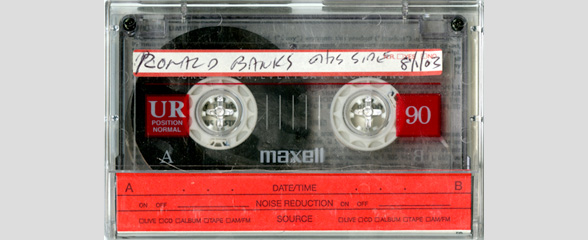 | Ronald Banks was cast as Chao in David Henry Hwang’s 2001 Broadway-bound revival of "Flower Drum Song” at Center Theatre Group/Mark Taper Forum in Los Angeles. In addition, Banks understudied two leads, Wang Shi Yang/Sammy Fong and Chinn, for this show. In this interview, Ronald discusses his experience on “Flower Drum Song” and what it was like being a performer in New York City and Los Angeles. His interview covers such topics as the production, rehearsals, changes in the script, the impact of 9/11, Asian stereotypes, his Japanese heritage, and reflections on being an Asian American and American actor. This interview is one of a series of 18 interviews that author David Lewis Hammarstrom conducted in 2003 as part of research for his book, Flower Drum Songs: The Story of Two Musicals (2006). Please note that this interview was conducted by phone and the audio quality is extremely poor throughout. | 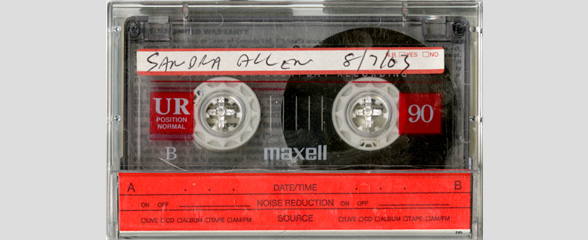 | Sandra Allen was cast as Linda Low in the 2002 Broadway revival of "Flower Drum Song," a revision and update of the 1958 Rodgers and Hammerstein production of the musical of the same title by playwright David Henry Hwang. In this interview, Sandra discusses her experience on "Flower Drum Song" and what it was like being a performer in New York City and Los Angeles. She shares her background and thoughts about the Broadway production. This interview is one of a series of 18 interviews that author David Lewis Hammarstrom conducted in 2003 as part of research for his book, Flower Drum Songs: The Story of Two Musicals (2006). Please note that this interview was conducted by phone and the audio quality is extremely poor throughout. | 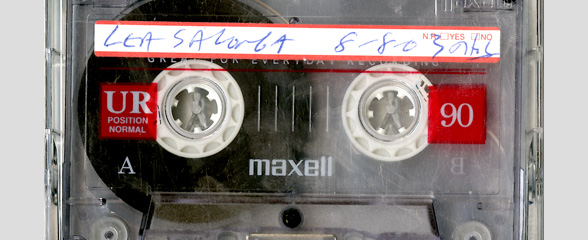 | Lea Salonga is interviewed by David Lewis Hammarstrom on her role as Mei-Li in the “Flower Drum Song” revival musical. Throughout the interview, Lea is asked to share her thoughts on the differences between the Los Angeles and New York performances of “Flower Drum Song.” Most notably, she is asked about the potential impact of factors such as audience and critical reception might have had on the success of the show on Broadway. Lea also elaborates on her influence on the direction of the musical performances and promotion efforts. This interview is one of a series of 18 interviews that author David Lewis Hammarstrom conducted in 2003 as part of research for his book, Flower Drum Songs: The Story of Two Musicals (2006). | 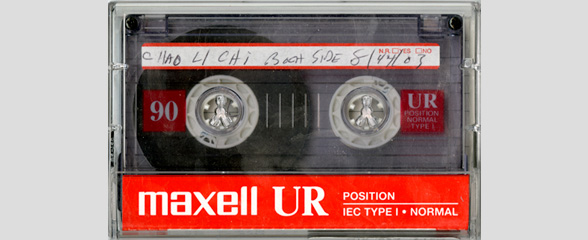 | Chao Li Chi was part of the original cast of Rodgers and Hammerstein’s 1958 musical “Flower Drum Song.” Chi begins the interview by describing the rehearsal process for the show’s theme song “A Hundred Million Miracles,” and the cultural significance of flower drum song as a folk dance style from Anhui Province, where C. Y. Lee, the author of the Flower Drum Song novel was from. According to Chi, he was initially cast as the father of Mei-Li and supposed to perform with her in that number, however, Gene Kelly, the director, recast him into two understudy roles after it became clear that Miyoshi Umeki, the actress cast as Mei-Li, had two left feet and Chi’s dance skills would upstage her. Chi then provides a critique of the show’s writing. He describes the script as put together piecemeal and made into a burlesque by others after Oscar Hammerstein had to go into the hospital. Chi also explains the circumstances around the firing of certain cast members in Dallas, which led him to file a case with Actors’ Equity challenging the termination of his friend in the ensemble. He also shares his thoughts on the movie and David Henry Hwang’s revival. This interview is one of a series of 18 interviews that author David Lewis Hammarstrom conducted in 2003 as part of research for his book, Flower Drum Songs: The Story of Two Musicals (2006). | 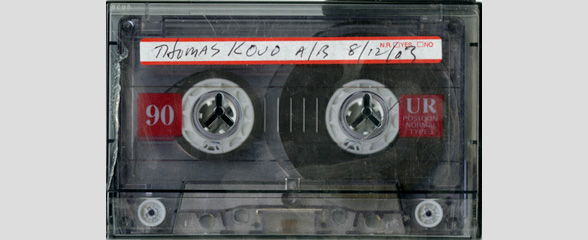 | Thomas Kouo was part of the original cast of David Henry Hwang’s rewriting of “Flower Drum Song,” which opened at the Mark Taper Forum in Los Angeles in 2001. He is an actor and writer who has been in the Broadway and National Tour productions of “Miss Saigon.” Some of his other credits include “Jesus Christ Superstar,” “Chess," and “Brigadoon.” In this interview, Thomas Kouo discusses early workshop readings of "Flower Drum Song,” rehearsals, critics and audience reception, Asian stereotypes, directing, and the impact of 9/11. This interview is one of a series of 18 interviews that author David Lewis Hammarstrom conducted in 2003 as part of research for his book, Flower Drum Songs: The Story of Two Musicals (2006). Please note that this interview was conducted by phone and the audio quality is extremely poor throughout. | 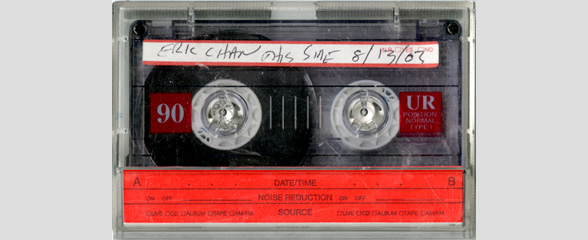 | Eric Chan was part of the ensemble and an understudy for the character Chin in David Henry Hwang’s 2002 Broadway revival of Rodgers and Hammerstein’s “Flower Drum Song.” In the interview, Eric is asked to give his thoughts on various versions of “Flower Drum Song” and gives insight into changes made to the show as it transitioned from workshop to Broadway production. A significant portion of the interview addresses the reasons that the show met with less than hoped for success in New York. This interview is one of a series of 18 interviews that author David Lewis Hammarstrom conducted in 2003 as part of research for his book, Flower Drum Songs: The Story of Two Musicals (2006). | 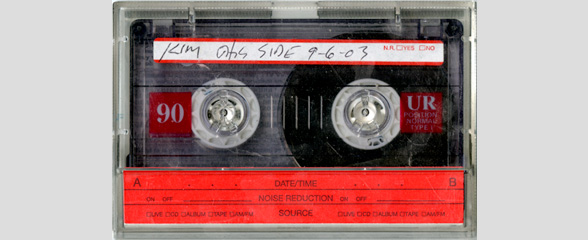 | Kim Varhola is interviewed by David Lewis Hammastrom on her role in the Broadway revival of “Flower Drum Song.” David begins by asking about Kim’s experience with auditions and performances in both Los Angeles and New York City. Topics also covered include casting decisions, funding and investments, marketing strategy, and critical reception. An emphasis is placed on comparing the differences between the Los Angeles and Broadway performances on points of contrast ranging from environment to demographics of the audience. This interview is one of a series of 18 interviews that author David Lewis Hammarstrom conducted in 2003 as part of research for his book, Flower Drum Songs: The Story of Two Musicals (2006). | 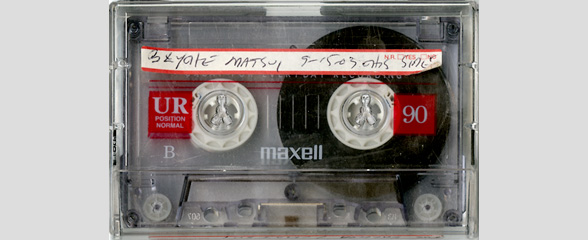 | Blythe Matsui was cast as an understudy in the Los Angeles production of David Henry Hwang’s 2002 revisal of Rodgers and Hammerstein’s musical “Flower Drum Song.” In this interview, Blythe discusses researching and auditioning for the role of Linda Low, not getting the part, being offered the job of understudy, and her disappointment about not being selected to go on to the subsequent New York production. She also provides a candid behind the scenes view into the strained relationship director Robert (“Bobby”) Longbottom had with cast members. This interview is one of a series of 18 interviews that author David Lewis Hammarstrom conducted in 2003 as part of research for his book, Flower Drum Songs: The Story of Two Musicals (2006). | 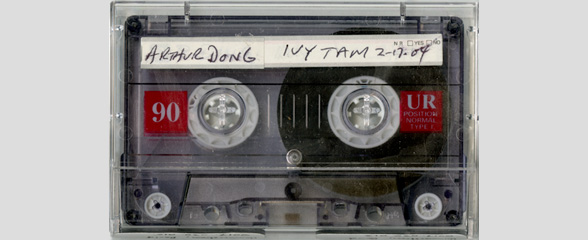 | Ivy Tam was a chorus girl at Forbidden City from 1959 to 1962 during the peak of San Francisco Chinatown’s nightclub scene. She was also briefly married to the nightclub’s founder, Charlie Low. In this interview, Ivy provides insight into how dancers at Forbidden City were scouted as talent for the musical production and movie version of Rodgers and Hammerstein’s “Flower Drum Song.” She also discusses how she herself was considered for but ultimately declined a role as double for Nancy Kwan (Mei-Li) in the film. Ivy also shares her thoughts on various topics, such as whether Rodgers and Hammerstein based their show on Forbidden City, critiques about the racial insensitivity of the original show, and her opinion of David Henry Hwang’s rewriting. This interview is one of a series of 18 interviews that author David Lewis Hammarstrom conducted in 2003 as part of research for his book, Flower Drum Songs: The Story of Two Musicals (2006). | 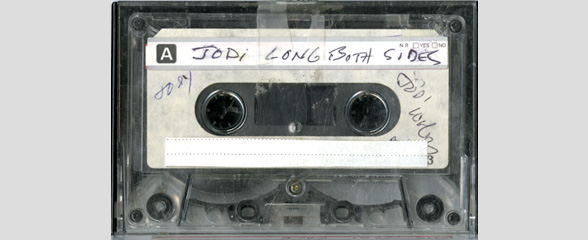 | Jodi Long was cast in the Broadway revival of Flower Drum Song in 2002. She has acted in various feature films and television shows as a series regular. In this interview, she goes into particular detail about Flower Drum Song’s casting process and her parents, who are both actors. This interview is one of a series of 18 interviews that author David Lewis Hammarstrom conducted in 2003 as part of research for his book, Flower Drum Songs: The Story of Two Musicals (2006). |









